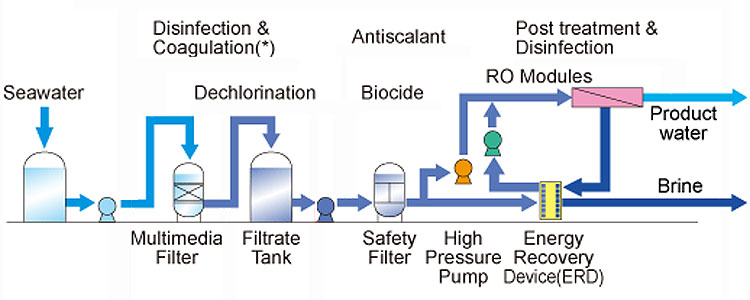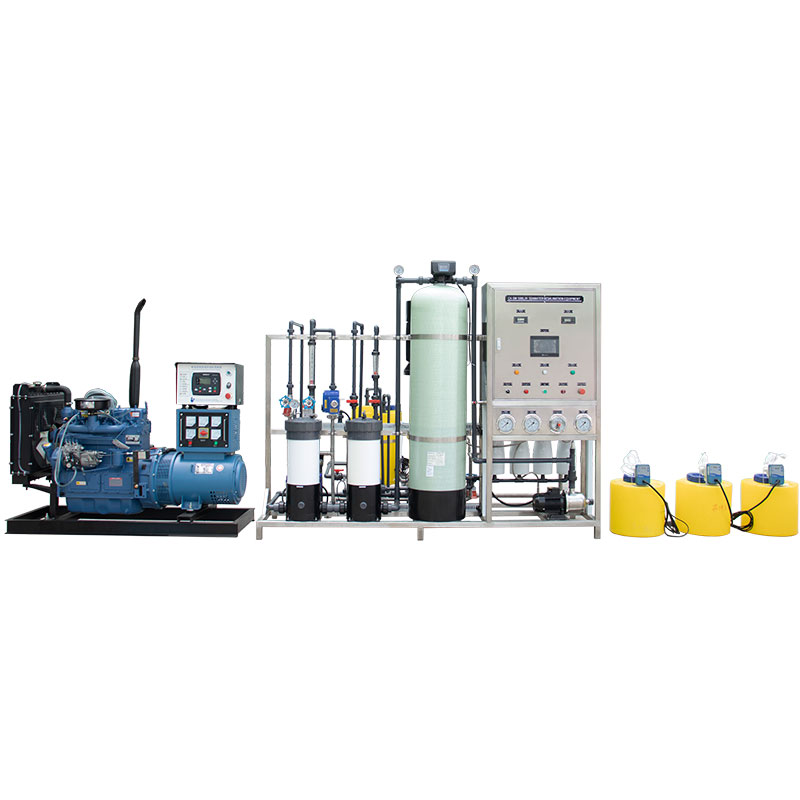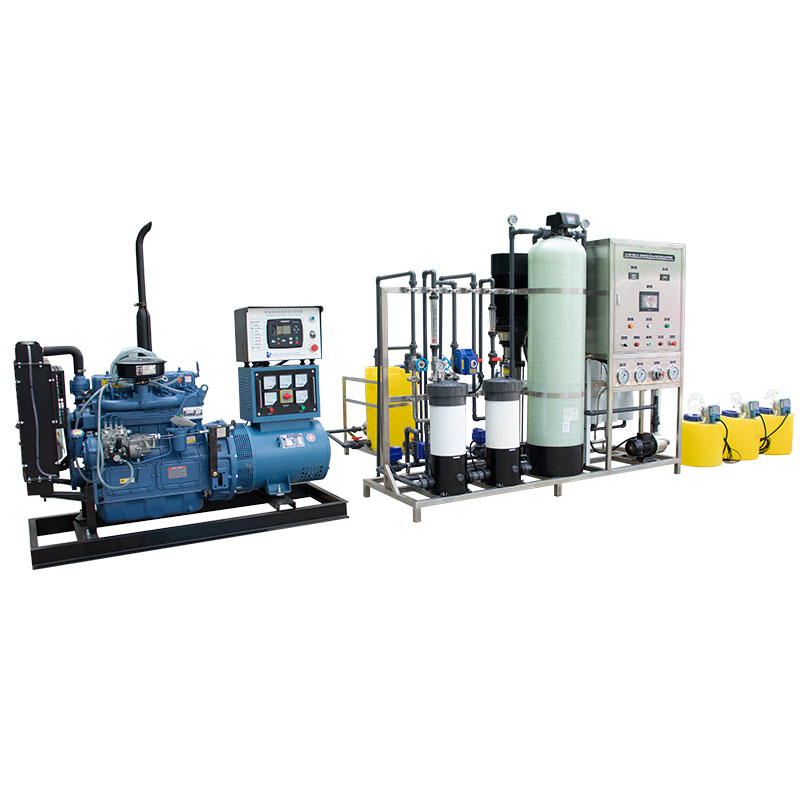Are there commercial reverse osmosis systems for sale on the market?
Are there commercial reverse osmosis systems for sale on the market? This is a question that many businesses and individuals often ask when considering water treatment equipment. Behind this question, it involves the demand for reverse osmosis systems for commercial use and whether there are corresponding products available on the market. This article will explore this issue and provide an in-depth look at the components and applications of commercial reverse osmosis systems.

Commercial Reverse Osmosis Systems for Sale
Commercial reverse osmosis water purification system is a type of water treatment equipment commonly used by water supply companies and commercial institutions on the market. CHUNKE commercial reverse osmosis water purification system is one of them, which is mainly used to purify water. Priced from US$1,000 to US$8,000, the system includes components such as booster pumps, pretreatment tanks, filter housings, chemical metering systems, high-pressure pumps, membrane pressure vessels, membranes, and control systems. Components such as the sand filter, activated carbon filter, and softener tank in the pretreatment tank are critical to the water purification process.
How a commercial reverse osmosis system works:
The working principle of the commercial reverse osmosis system is to start from the booster pump and send the raw water into the pretreatment tank for treatment. According to different water sources and water quality requirements, the material and capacity of the pretreatment tank can be adjusted. For tap water or low TDS fresh water, FRP or stainless steel materials can be used; while for water sources with high salt content, FRP or carbon steel materials need to be used for the construction of pretreatment tanks.
The design and construction of commercial reverse osmosis systems need to take into account the treatment needs and usage scenarios of different water quality, so they usually have a certain degree of flexibility and customizability.
Commercial reverse osmosis systems typically include the following components:
Booster pump: used to increase the pressure of water to ensure that water can be effectively filtered through the reverse osmosis membrane.
Pretreatment tank: including sand filter, activated carbon filter, etc., used to pretreat raw water to remove impurities and pollutants.
High-pressure pump: used to send pretreated water into the reverse osmosis membrane for further filtration and purification
Membrane pressure vessel: houses the reverse osmosis membrane to ensure its normal operation and achieve the best purification effect.
Membrane: The reverse osmosis membrane is the core component of a commercial reverse osmosis system. It effectively filters dissolved solids and pollutants in water through its small pores.

What are the applications of commercial reverse osmosis systems?
Catering industry: Restaurants, hotels and other places require large amounts of clean, healthy water for food preparation and drinking. Commercial reverse osmosis systems can provide high-quality water sources to ensure food safety and hygiene.
Pharmaceutical and medical industry: Places such as pharmaceutical factories and hospitals require pure water for drug production and patient treatment. Commercial reverse osmosis systems can remove microorganisms and harmful substances in the water to ensure that the water quality meets the requirements for drug production and medical water.
Electronics and power industry: Places such as electronics factories and power plants require pure water for the manufacturing of electronic components and equipment cooling. Commercial reverse osmosis systems can provide a water source with low dissolved solids content to prevent scale and corrosion from damaging equipment.
Agriculture and greenhouse cultivation: Farms and greenhouses require clean water sources for irrigation and plant growth. Commercial reverse osmosis systems can remove impurities and harmful substances from the water and provide a water source suitable for plant growth.
What are the advantages and disadvantages of commercial reverse osmosis systems?
Advantages of commercial reverse osmosis systems:
High-efficiency filtration: Commercial reverse osmosis systems can efficiently remove bacteria, viruses, heavy metals and other pollutants in water, ensuring the purity and safety of the produced water. Secondly, commercial reverse osmosis systems use advanced membrane technology to achieve efficient water separation and filtration, improving water treatment efficiency and water production quality.
Wide Applicability: Another advantage of commercial reverse osmosis systems is their wide applicability. They can be customized according to different water needs and water quality characteristics to meet the needs of different industries and places. Whether it is the catering industry, hotel industry, pharmaceutical industry or electronics industry, commercial reverse osmosis systems can provide customized solutions to provide users with safe and reliable water resources.
Strong customizability: Commercial reverse osmosis systems can be customized and designed according to different water quality and usage scenarios to meet customer-specific needs. These systems also feature modular design and intelligent control functions, making them easy to install, operate and maintain, reducing operating costs and labor investment.
Disadvantages of commercial reverse osmosis systems:
Higher energy consumption: Commercial reverse osmosis systems generally require higher energy consumption, especially if large amounts of water treatment are required, which can increase operating costs.
High maintenance costs: Commercial reverse osmosis systems require regular maintenance and replacement of filter elements, membranes and other components, which results in high maintenance costs.
Wastewater generation: Commercial reverse osmosis systems produce large amounts of wastewater during the process, which require proper treatment and disposal to reduce environmental impact.

What role do commercial reverse osmosis systems play in purifying water and protecting health?
Commercial reverse osmosis systems play a vital role in purifying water and safeguarding health. First of all, through efficient filtration and treatment technology, they can completely remove harmful substances and pollutants in the water, ensuring the purity and safety of the produced water. This is essential to protect people's health and prevent water pollution.
Secondly, commercial reverse osmosis systems can provide stable and reliable water resources for commercial and industrial areas. Whether in food processing, beverage production, pharmaceutical industry or electronics manufacturing, high-quality water purification is a key part of the production process. Commercial reverse osmosis systems can meet the strict requirements for water quality in different industries and ensure product quality and production safety.
Summarize
There are indeed commercial reverse osmosis systems available for sale on the market, and these systems have a wide range of applications in various industries and fields. Commercial reverse osmosis systems have the advantages of efficient filtration, wide applicability, and customizability, but they also have disadvantages such as higher energy consumption, high maintenance costs, and wastewater generation. By understanding the characteristics and applications of commercial reverse osmosis systems, companies and individuals can better select and apply water treatment equipment that suits their needs.




